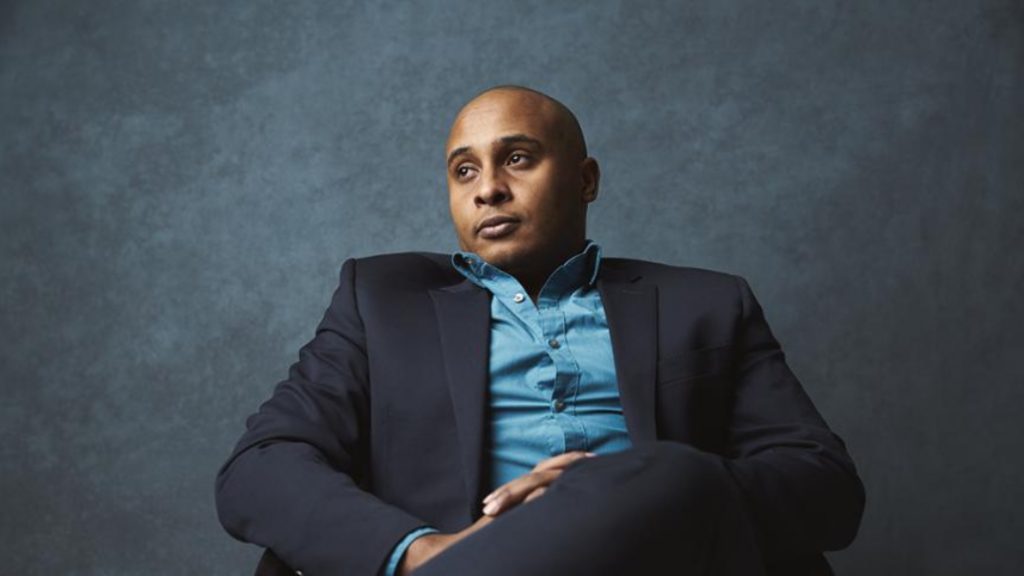Nurturing the entrepreneurial spirit

BY Monique Beech
May 29, 2018
A decade of industry experience inspired Hussam Haroun’s vision of how affordable, prefabricated data centre units could transform the world of information infrastructure.
McMaster’s graduate program in Engineering, Entrepreneurship and Innovation (MEEI) helped him research and test the idea, build partnerships and find funding to bring it to life.
But it was his migratory childhood that truly made him an entrepreneur, says Haroun, 34.
With a mother who worked as an economic development program manager for the United Nations, Haroun and his sister attended 12 schools in four different countries before settling in Oman for high school. In 2001, they moved to Canada where Haroun earned an electrical and electronics engineering degree from Ryerson.
Being uprooted on an almost yearly basis taught him how to manage new situations, rebuild quickly, and start over again when confronted with failure – all part of the ethos of an entrepreneur.
“That mentality was embedded in me through nurturing and life experiences,” he says. “The biggest part of being an entrepreneur is taking the risk, and that part was inside of me, but to succeed, I also needed the education, the guidance, the mentoring and the relationships that I got through the McMaster program.”
“I was very interested in the program because it allowed you to start with an idea, then take it to market and take it through an entire process to validate it. The support I received was fantastic in guiding me through this.”

The idea
In 2015, following his graduation from the MEEI program, Haroun launched Cinnos Mission Critical Incorporated, an ambitious and rapidly-growing Hamilton technology start-up.
The company is centred on Haroun’s patented “data centre in a box” invention, officially trademarked as the Smart Mission Critical Rack (SmartMCX).
The idea for a scalable, energy-efficient data appliance that could be quickly and affordably deployed, was born out of Haroun’s six years of experience working at Rogers Communications.
Overseeing the building of bricks-and-mortar data centres exposed him to the frustrations of construction delays and cost overruns. And while designing expansion room to accommodate future growth was necessary, it resulted in wasted energy and capacity in the short-term.
Haroun envisioned a way to allow companies to buy “just-in-time” quantities of data centre capability through manufactured boxes that could be connected to expand capacity. Along with lower costs and rapid set-up, the system features proprietary software offering additional benefits, including improved energy efficiency.
“I used my industry experience to solve an industry problem,” he says.
The partnership
But the ever-evolving tech marketplace demands tomorrow’s solutions. And the ever-inquisitive researcher requires novel problems with commercial or societal impact.
That vision led Haroun to partner with McMaster’s Dr. Suvojit Ghosh, who created the Computing Infrastructure Research Centre (CIRC) alongside Dean Ishwar K. Puri, a research centre in the Faculty of Engineering and a pioneering model of university-industry collaboration.
Shared space is key to the innovative partnership, which is focused on developing leading-edge technologies for the $100 billion global data centre industry. CIRC engineering students and researchers work alongside Cinnos entrepreneurs in the McMaster Innovation Park, allowing seamless sharing of research ideas and customer problems.
“Our students not only get a deep and meaningful research experience, but they also learn about the importance of the customer needs and market opportunities in defining and driving that research,” says Ghosh. “These are things that could not happen if CIRC and Cinnos did not share the same space and similar visions.”
For Cinnos, the partnership offers access to cutting-edge research that can be quickly market-tested. The company has committed more than $3 million in funding for six CIRC projects designed to transform archaic and wasteful practices in the data centre industry.
 The people
The people
The idea might have been his, but Haroun emphasizes how important other people have been in bringing Cinnos to life.
Mentors at Rogers encouraged his innovative drive, and later, the company signed as a customer for Cinnos through various innovative projects. (Evergreen Brickworks, considered one of Canada’s most sustainable organizations, was Cinnos’s first customer.) Instructors at McMaster helped him hone and validate his vision. And key partners, including entrepreneurs he met through MEEI, helped found and continue to run the company.
The child who had to make new friends with every move now says building “robust relationships,” and surrounding himself with people he trusts are central to him and the company.
“That’s part of the ecosystem you create for yourself,” says Haroun.
The future?
Given the globe’s growing numbers of Internet-connected devices, and the impact of increasing quantities of video, the demand for data infrastructure is clearly destined to continue to grow.
But Haroun doesn’t just see all that data as a compelling business opportunity. He thinks it can also be a potentially world-changing force for good, as communities find new ways to share their stories and their generosity.
“I think peace will come from data,” he says earnestly. “I genuinely believe that.”
And despite the uncertainties of the rapidly-changing industry, he isn’t concerned. “The best thing about being an entrepreneur is being able to take control of your plan. But not knowing – the unknown – to me that’s the adrenaline rush.”
This article is part of a series of profiles celebrating the 60th anniversary of McMaster’s Faculty of Engineering. For more Big Ideas stories, go to the faculty’s website.


